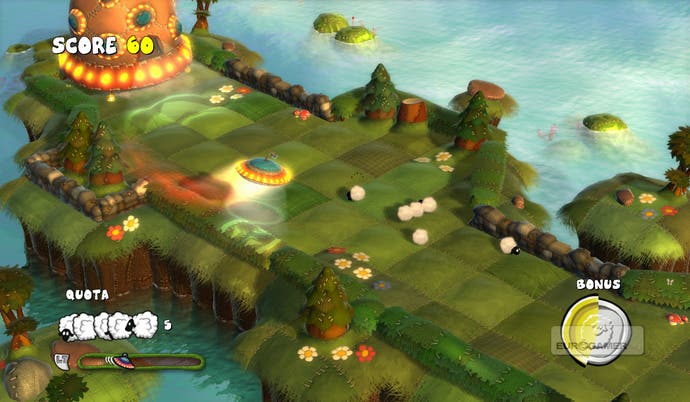An Englishman in New Tokyo
The Westerners saving the Japanese games industry from within.
Finding Fortune on the Horizon
When Jason Kapalka, creative director and co-founder of PopCap, was approached by Square Enix to collaborate on the development of a puzzle game, he had no idea what to expect. "It was super weird. We'd been talking to Square about publishing some of our games in Japan and, during these talks I mentioned as a joke, an idea to combine Final Fantasy and Bejeweled. I didn't expect it to go anywhere. But the idea somehow took on a life of its own.
"Gyromancer went through a lot of discussions and changes over the next year or two, and I think came close to being cancelled several times. Up to the day it was released I still found it hard to believe it was actually happening..."
While many Japanese publishers have worked with Western developers to create products in recent years, from Capcom with Bionic Commando: Rearmed to Konami with Rock Revolution, Gyromancer was a true and rare collaborative effort between East and West. "The majority of the development was carried out by Square, including all the art, the story, the RPG metagame, and so on," explains Kapalka.
"Our involvement was strictly in the puzzle battle engine. As for the stylistic differences, we certainly knew Square would go in a different direction than we would have if we'd tried such a project, but that was part of the appeal; there are lots of Square fans at PopCap. There were a couple of early passes at the storyline that made us nervous but Square eventually went with a considerably less dark narrative."
Initial plans to bring Gyromancer under the Final Fantasy or Bejeweled brands faltered, and eventually the decision was made to make the game an independent IP. It's telling that the main barriers to smooth development weren't caused by language but intellectual property.

"We built prototypes of the puzzle engine, using Bejeweled Twist as the base, and sent them to Square. Once we had a fairly solid idea of how it worked, Square took over and started making their own changes to the engine to support the RPG model they had in mind. Initially we sent builds over to Japan on a regular basis, and then, when Square took over development, they would send us builds for review. In both cases, feedback would be written up and translated if necessary, then sent back to the appropriate people."
For Kapalka the collaboration was a success, demonstrating how Japanese and Western companies can work together to create globally-appealing properties. "The project made it clear that Square was ready and willing to try some radically different and unusual collaborations to expand their focus. They clearly don't want to just keep milking Final Fantasy over and over; they've been trying a lot of really experimental titles over the last couple of years, starting with stuff like Kingdom Hearts.
"It's a challenge, but handled intelligently, it can pay dividends. The distance, time zone, and language issues make it hard to collaborate in real time, so I think that something like what was done with Gyromancer actually works pretty well: make sure the teams have clear distinctions in their work projects, and when necessary, make sure the hand-off between the teams is clean and well understood."








